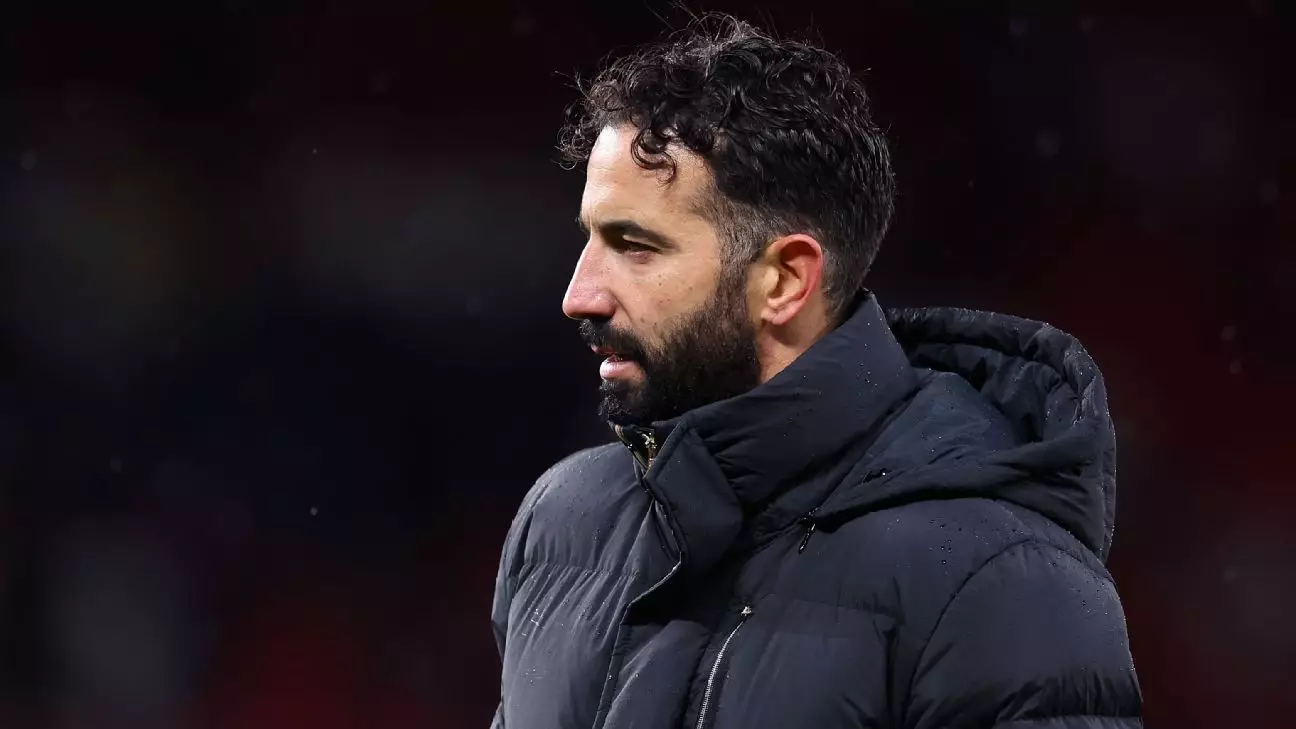As the Manchester United faithful reel from a bitter 3-2 defeat to Nottingham Forest, head coach Ruben Amorim finds himself amidst a maelstrom of expectations and challenges. Historically one of England’s most celebrated football clubs, United has become synonymous with success. However, recent performances underscore a disheartening reality; the team is grappling with mediocrity. Such sentiments have been echoed by co-owner Sir Jim Ratcliffe, who boldly asserted that the club has lost its iconic status. For Amorim, the task ahead appears monumental, and the match against Nottingham served as a stark indicator of the uphill battle he must face.
United entered the game against Forest already reeling from a defeat to Arsenal, a sign that they might be on a downward spiral. With Forest being a recently promoted side that had itself faced challenges in the league, one might have expected a different outcome. However, their ability to clinch a historic victory at Old Trafford—marking its first in three decades—illustrates the extent of United’s current issues. The defeat not only reflects poorly on the current squad but also serves as a wake-up call for Amorim about the colossal rebuilding task that lies ahead.
The crux of United’s downfall against Forest can be traced back to a series of calamitous defensive lapses. Basic errors plagued the match, culminating in a trio of goals that simply should not have been conceded at this level. Lisandro Martínez’s failure to defend a set piece so early in the match set a painful tone. Errors like this raise questions about the fundamental skills of the players—a concern that transcends tactics and formations. Amorim’s heavy focus on tactical adjustments is futile when players fail to execute the basics on the pitch.
As the match progressed, it became evident that not just Martínez, but the entire backline was in disarray. The second goal, an uncharacteristic mistake by goalkeeper André Onana, served as a harsh reminder of past mistakes that have haunted him. A harmless shot from distance found its way into the net, indicative of a lack of confidence that permeated through the squad. Such lapses should have been addressed in training, yet they reared their ugly heads at the most inopportune time.
Adding insult to injury, Forest’s third goal exemplified collective failure. Awful positioning and weak challenges allowed Chris Wood to convert what seemed to be a harmless effort into a goal. The bewildered looks exchanged between Onana, Martínez, and Matthijs de Ligt reveal the lack of cohesion and understanding in the defense. For a club that prides itself on its rich history, witnessing players fail to perform basic tasks is nothing short of alarming.
Despite the upheaval, Amorim remained resolute in his post-match reflections. He articulated the necessity for continuity and perseverance, reinforcing the notion that the team must maintain focus on improving individual performances. By comparing his early struggles at Sporting Lisbon to the current situation at United, he underscored that experiencing setbacks is an inherent aspect of managerial life. While this perspective is commendable, it also raises questions about the longevity of such patience from fans and management alike.
Amorim’s journey with Manchester United has just begun, but the stakes are incredibly high. With upcoming fixtures that include a UEFA Europa League tie, a Manchester derby, and clashes against formidable opponents such as Tottenham and Liverpool, he cannot afford to dwell too much on past failures. The reality remains that time is often a luxury not granted in the high-pressure environment of modern football.
As United currently languishes in the lower half of the Premier League table, Amorim’s task will require more than simple tactical adjustments—he must revitalize the entire culture of the team. Instilling resilience and confidence will be paramount if United is to emerge from what has undoubtedly been one of the most challenging epochs in its modern history.
The road ahead is fraught with challenges, and the fans will not be patient forever. But if Amorim can galvanize his squad into a cohesive unit, perhaps redemption can come sooner rather than later. The defeat to Forest served as a wake-up call, highlighting the urgent need for reinvention at Old Trafford. As the storm clouds loom over Manchester, the true character of both coach and players will be tested.

